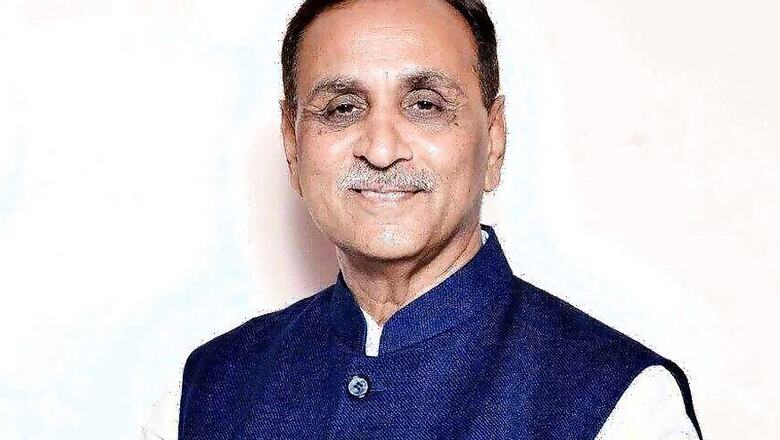
views
"Vajubhai won’t be able to make it to the show"; Rajkot BJP media in-charge Raju Bhai Dhruv told me almost apologetically.
In the winters of 2002, Gujarat was witnessing a highly surcharged election campaign in the aftermath of the post-Godhra riots. Vajubhai Vala, the Saurashtra stalwart had just returned to his home turf after a year long hiatus. Vajubhai had a year back vacated his Rajkot seat to pave the way for Narendra Modi’s entry into the state assembly. Modi on a much firmer ground as he faced his second elections had decided in shift base to Maninagar in Ahmedabad.
So in absence of a busy Vajubhai, district BJP decided to send- I was told a promising orator- as their representative to a TV show we were hosting in Rajkot.
That was my first meeting with Vijay Rupani, way back in December, 2003.
"So would you one day like to enter electoral politics"; I asked him after the show got over.
Politicians are an ambitious lot, but they also have a God’s gift to varnish their desires with a fine sheen of contentment. May be he was too young at time to have learnt the tricks of the trade, but Rupani I distinctly remember, sounded genuinely pessimistic about his electoral prospects. Quite understandably, for a Jain, a miniscule minority in the Patel dominated Saurashtra, winning and making a mark for one self in the state politics then was quite a task.
Fourteen years later, and three days after he celebrated his sixtieth birthday, Rupani has replaced Anandiben- and a Patel at that- as the state chief minister. And ironically as it may sound, Vijay Rupani’s caste neutrality was precisely the propellant which helped him surge past other contenders in the race.
That was also precisely the case in 2002 when Modi was sent to Gujarat by the central leadership as a compromise candidate to settle internecine intra-party wars. The ruse was: rehabilitation and re-building of Gujarat after the Bhuj earthquake should be in the hands of a young leader rather than that of an aging Keshubhai who was dubbed an ineffective administrator.
Didn’t we hear the same refrain over and over again as Anandiben’s working relationship with the party president Amit Shah deteriorated in the last six months! That Rupani- a former Rajya Sabha MP- was being drafted for a larger role was also evident from the fact that he was asked to contest from Rajkot West after Vajubhai Wala was shifted out on a gubernatorial assignment to Karnataka. He was made a minister in Anandiben’s cabinet so that he acquires administrative experience. Rupani was also Amit Shah’s choice for the state president’s post after both Modi and Shah shifted to Delhi.
Rupani’s ascension to the top post in Gujarat is also a classic example of how smaller communities tend to negotiate their way and survive in highly competitive power structures.
Congress leader Ashok Gahilote in adjoining Rajasthan is another classic example in this genre. Coming as he does from a numerically smaller and backward community, Gahilote has on two occasions successfully thwarted claims of vocal and domineering Jats in Rajasthan to emerge as a consensus choice for the CM’s post.
Fourteen years back on that December day in Rajkot when I first met him, Rupani wasn’t quite sure whether he would ever contest a direct election. All these years later, he seems to have learnt the ropes of the trade.














Comments
0 comment